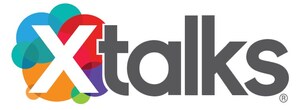
In this free webinar by KCAS Bio, learn about the growing need for ultrasensitive bioanalytical platforms and kits, especially in disciplines like neuroscience, where analytes are often present at very low concentrations in peripheral circulation. Attendees will gain insight into NULISA™/Argo™ HT capabilities and how the platform pushes the limits of biomarker sensitivity and applies to challenging biomarker-detection scenarios. The featured speakers will discuss assay optimization, including how antibody conjugation, capture/detection ratios and buffer conditions enhance performance. The speakers will also share biomarker study applications and examine results from CSF, plasma and extracellular vesicles, highlighting relevance for ALS, Alzheimer's and translational research.
TORONTO, Nov. 18, 2025 /PRNewswire/ -- In drug development, there is a growing demand for ultrasensitive bioanalytical platforms and kits, especially in disciplines like neuroscience, where analytes are often present at very low concentrations in peripheral circulation. KCAS Bio addresses this demand by offering a spectrum of technologies, from dedicated platforms to ultra-sensitive kits on conventional systems. Among these platforms, the NULISA™ / Argo™ HT represents the most recent cutting-edge new technology showing great potential not only in the ultra-sensitivity space but also in targeted proteomics. In this webinar, the speakers will present initial data from early-stage implementation, testing the platform's ability to push the sensitivity limits for a target engagement biomarker. Viewers will gain valuable insights into developing, optimizing and applying this next-generation technology for challenging biomarker detection scenarios.
A sponsor transferred the Simoa® method, which proved insufficiently sensitive for monitoring a decrease of their target engagement biomarker in CSF (cerebrospinal fluid) and plasma from patients with a rare neurodegenerative disease. Leveraging the ultra-high sensitivity of the NULISA™ / Argo™ HT platform, the team tested the Custom Assay Development Kit for its ability to improve the method's sensitivity.
Capture antibody (Ab) was conjugated to a partially double-stranded DNA fragment containing a poly-A tail and a target-specific molecular identifier (TMI), while detection Ab was conjugated to another partially double-stranded DNA fragment carrying a biotin group and a matching TMI. After controlling conjugation with SDS-PAGE, the Ab conjugates were tested in the same orientation as for the Simoa® method. In an initial experiment, calibrators prepared in buffer were tested in parallel with representative biological samples and kit controls. The default 1:1 ratio for capture and detection antibodies was tested for the calibration curve in buffer or in plasma. For test samples, different concentrations and ratios of Ab conjugates were compared.
Encouraging results were obtained from this initial experiment, validated with NULISA™ / Argo™ HT controls that fell within the expected Cq value range. Even when built with these default Ab conjugate concentrations, the calibration curve showed improved sensitivity compared to the one obtained with the Simoa® method. Results from test samples further indicated that optimizing assay conditions could further enhance assay sensitivity. A capture-to-detection ratio of 1:4 significantly improved the estimated LLOQ and the delta Cq signal-to-noise in biological samples.
Subsequent experiments will focus on evaluating the impact of Ab conjugate titration and assay buffer on the sensitivity of the method and its ability to quantify samples that were below the LLOQ of the Simoa® method. Additional preliminary data will be shared from plasma, CSF and extracellular-vesicle-derived biomarkers in ALS and Alzheimer's disease compared with healthy controls using a 120-plex neurological panel.
Register for this webinar to learn how biomarker testing with NULISA™ / Argo™ HT can enhance assay sensitivity and expand discovery potential across neurodegenerative research.
Join experts from KCAS Bio (Lyon), Christine Bain Wendlinger, PhD, Senior Scientific Advisor; and Fabien Lavocat, MSc, Scientist, Bioanalytical Method Development, for the live webinar on Wednesday, December 10, 2025, at 11am CET/EU-Central (10am GMT/UK).
For more information, or to register for this event, visit Biomarker Testing: Pushing the Limits of Ultrasensitivity.
ABOUT XTALKS
Xtalks, powered by Honeycomb Worldwide Inc., is a leading provider of educational webinars and digital content to the global life science, food, healthcare and medical device communities. Every year, thousands of industry practitioners (from pharmaceutical, biotechnology, food, healthcare and medical device companies, private & academic research institutions, healthcare centers, etc.) turn to Xtalks for access to quality content. Xtalks helps professionals stay current with industry developments, regulations and jobs. Xtalks webinars also provide perspectives on key issues from top industry thought leaders and service providers.
To learn more about Xtalks visit www.xtalks.com
For information about hosting a webinar visit www.xtalks.com/why-host-a-webinar/
Contact:
Vera Kovacevic
Tel: +1 (416) 977-6555 x371
Email: [email protected]
SOURCE Xtalks






Share this article